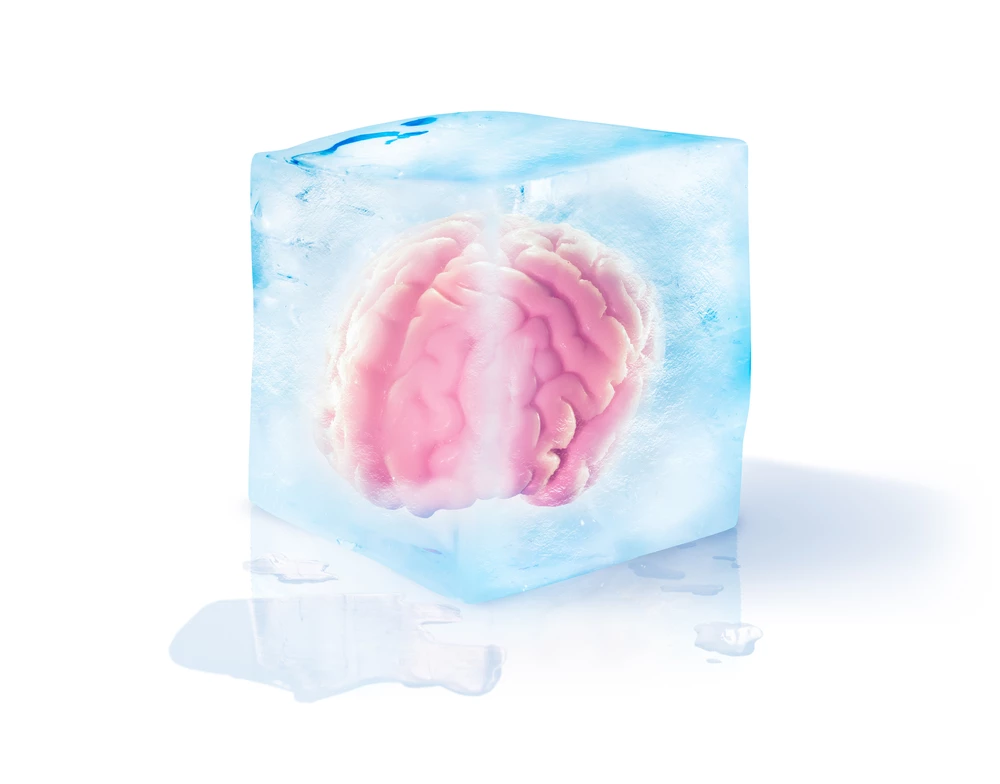
Why does your head suddenly hurt when eating ice cream?
"Brain freeze" may be a term you haven't heard before, but there's a good chance you've experienced it.
On a hot summer day, as you enjoy an ice cream or hold a cold cocktail in your hand, that immediate regret you feel after taking a sip is all too familiar. You've fallen victim to "brain freeze" – that throbbing pain you feel in your forehead or the back of your head after quickly consuming something very cold. But why does a sudden encounter between something cold and your mouth result in pain in your forehead?
And is there anything you can do to prevent it?
The phenomenon of "brain freeze" or "ice cream headache" has puzzled doctors until they discovered the reason behind the intense headache we experience.
Yes, the brain does freeze. When it is exposed to a rapid internal stimulus like consuming ice cream or cold beverages, or an external stimulus like being out in freezing weather.
Brain freeze occurs when something extremely cold touches the roof of the mouth, specifically the upper palate. This typically happens when the weather is very hot and a person consumes something cold quickly.
There is a theory among scientists to understand the "cold-induced headache" that suggests when the blood vessels in the nasal sinuses are cooled by a cold stimulus, it causes vasoconstriction. Then, when they are rapidly heated by breathing in air, these quick changes near the sensitive nerves in the mouth create nerve responses that result in the sensation of brain freeze.
Another theory, supported by some doctors who conducted an experiment on 13 volunteers in 2012, aimed to understand this phenomenon more precisely. It was found that the sensation of brain freeze is caused by a sharp and sudden increase in blood flow through the anterior cerebral artery. When the artery constricts after consuming something warm, the pain immediately dissipates.
It is also believed that one of the most complex nerves in the brain, called the trigeminal nerve, is activated during cold-induced headaches. The trigeminal nerve controls sensation, including pain, in your face. When this nerve is activated during a cold-induced headache, a phenomenon known as "referred pain" occurs. In this case, although it is still unclear why, the trigeminal nerve interprets the pain as if it is emanating from your forehead and temple areas rather than your mouth.
Whichever theory accurately explains this phenomenon, it is not dangerous and does not cause short-term or long-term side effects. If you experience brain freeze, you can try the following solutions to alleviate the sensation:
- Drink a suitable amount of warm water.
- Press your tongue against the roof of your mouth to warm up the area.
- Cover your nose and mouth with your hands and breathe rapidly to increase the flow of warm air to the roof of your mouth.
According to a study published in the journal "BMJ" in 2002, 145 middle school students were divided into two groups. One group was instructed to consume about half a cup of ice cream in over 30 seconds, while the other group was instructed to consume the same amount of ice cream in less than five seconds.
The researchers found that out of the 73 students in the fast-eating group, 20 experienced cold-induced headaches, whereas there were nine out of 72 students in the cautious-eating group who experienced the headaches.
Doctors also say that migraine sufferers are more susceptible to brain freeze after consuming anything cold compared to people who do not experience migraines. The brain is highly sensitive because it needs to work continuously, and the stimuli it encounters can have a significant impact.
You don't have to stop eating ice cream or consuming cold beverages, but try not to consume them quickly and suddenly, especially in hot weather, to avoid experiencing brain freeze, which can cause pain for you.
Doctors' explanation for the pain that occurs in your head when consuming ice cream or cold beverages
